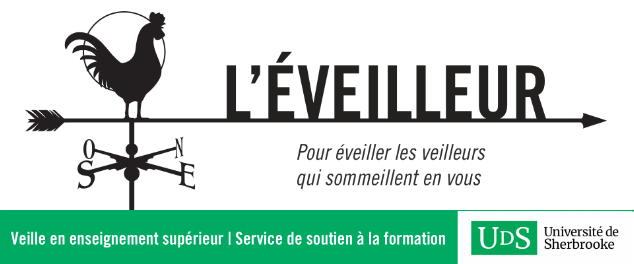Le Times Higher Education publie une entrevue avec l’ex-universitaire et auteur de romans David Lodge. Âgé de 80 ans, Lodge publie ses mémoires sous le titre Quite A Good Time to Be Born, mais l’entrevue aborde évidemment sa trilogie « Campus» (Changement de décor, Un tout petit monde, Jeu de société) où il peint un portrait sarcastique des mondes universitaires britannique et américain. Lodge, qui s’est retiré du professorat en 1987, est devenu un observateur privilégié de son ancien milieu de travail…
« …[A]s soon as I had [made the decision to retire from university life] I knew I’d made the right decision, and it happened to coincide with an increasing management culture in universities, which a lot of people my age have found rather imprisoning and depressing… I felt I’d had the golden years of British higher education from the 1960s to 1987 – I have the impression that life in British universities has not been as much fun since then.” »
Dans ses mémoires, il évoque les différentes révolutions culturelles ayant pris naissance sur les campus…
« …[T]he transformative impact of visiting the US; campus radicalism at the University of California, Berkeley; the first stirrings of women’s liberation. It also gives a vivid picture of a lost world of British universities, shabby, chaotic but decent, where most academics had only first degrees and most students were “the first members of their families to go to university, like the majority of us teachers”.
Il y est fait mention des années Thatcher, particulièrement difficile pour le monde universitaire britannique, et du fait que ses romans auraient pu donner des munitions à droite qui cherchait à couper dans les subsides aux diverses institutions:
« The Campus Trilogy was published between 1975 and 1988, years that saw a tremendous assault on higher education under Margaret Thatcher. Wasn’t Lodge worried that his books gave ammunition to those keen to discredit universities as a hedonistic and self-indulgent racket?
Nice Work, Lodge admits, was “seen as a rather inopportune book by a lot of the academics in England”. Even more painful was the fate of his friend Malcolm Bradbury’s novel The History Man, which was “published in 1975, at the height of the student revolutionary period, as a conservative reaction to that, satirising radical, right-on university teachers, their amorous escapades with students and so on. When it was shown as a TV serial in 1981, by which time Mrs Thatcher was in control, it was seized on as a kind of justification for her policies of cutting back, saying sociology isn’t a proper subject, starving the universities of funds for purely scholarly studies and so on. People said: if this is what our universities are like, why should we pay our taxes supporting people in jeans and cheesecloth shirts living it up at our expense? That was really a distortion and misapplication of the novel and caused Malcolm some embarrassment.”
For his own part, however, Lodge remains unrepentant. “Once you start worrying about what use will be made of your work,” he claims, “you’ve had it as a novelist. That would inhibit you from writing anything…Obviously a novel is a slightly exaggerated and heightened version of a reality, but if you think the basic relation of fiction to reality is fair, then you have to go with it.”»
Toutefois, il admet un certain gaspillage et un manque de solidarité entre universitaires…
“I think the 1970s were in some ways a rather decadent era,” he reflects, “the wastefulness, the sense of entitlement by universities that they could expect the country to go on paying while they did what they wanted. They weren’t very efficient at running their own ship, so there was some need for reform by that stage, but the direction it took was disastrous, because, instead of fighting back, the universities capitulated to the cuts and the managerial ethos.
“Instead of uniting, university departments just tried to avoid having cuts themselves and passed them on to other, weaker departments, when really it was solidarity that was needed.”
Although now very much out of the fray, Lodge is clearly unimpressed by what is happening in our universities today. His new memoir, like his fiction, offers some intriguing glimpses of other times, what deserved to be jettisoned and what was worth preserving.
À méditer en cette nouvelle ère de compressions?
Source: Reisz, Mattew, “Interview with David Lodge“, Times Higher Education, 29 janvier 2015







Salut, merci pour votre article très fascinant! Je suis de rennes et je suis passioné par ce sujet. Grâce à votre site que je viens découvrir au hasard d’un surf, je vais en apprendre davantage. Amicalement.